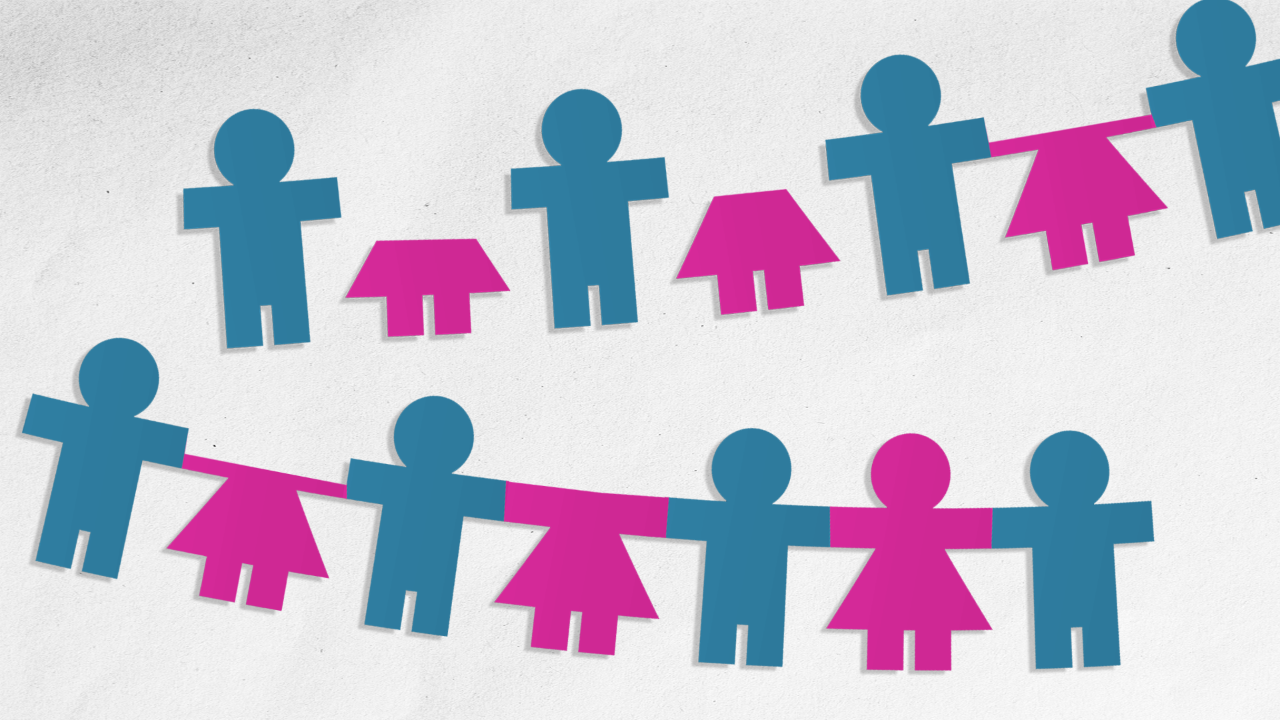Are We Doomed to Five More Generations of Inequality?
Mar 17, 2025
March is a time to honour the contributions of women, acknowledge the progress made, and recognize the persistent barriers that remain. Studies consistently show that diverse leadership teams drive stronger outcomes, improve decision-making, and contribute to more innovative and resilient organizations. When organizations tap into the full spectrum of talent and eliminate the barriers that hinder progress, they become more competitive and innovative.
Although strides have been made toward gender equality, true parity is still a distant goal. Research indicates that at the current rate of change, it will take over 130 years to close the gender gap. That means that entire generations of women would continue to face inequality in terms of participation, leadership, and pay.
To achieve a measure of equality in our lifetime, we must come together and harness the We for She mindset, recognizing that true progress requires collective action from everyone, not just women.
Change Isn't Only "Women's Work"
Throughout history, women have been at the forefront of transformation, bringing people together, fostering understanding, and strengthening communities. Their leadership, resilience, and ability to navigate complex challenges have created lasting impact. However, achieving gender equity is not solely the responsibility of women. It requires a collective effort, one where allies of all genders—men, women, and non-binary individuals—work together to ensure that equal opportunities are a reality, not just an ideal.
True allies have always played a role in advancing women's rights and opportunities. But it is understandable that in today's sensitive climate, some men may feel unsure about how to support women in the workplace or if their efforts are helpful or harmful. While that amount of introspect is laudable, doing nothing simply isn't an option.
For men in leadership, offering passive support is no longer enough. Advocating for gender equity means challenging biases, addressing workplace disparities, and actively fostering inclusive environments.
Turning Awareness into Action
Awareness alone does not create progress. Change happens when we take purposeful, consistent, and strategic action. As we celebrate the achievements of women this month, we must also commit to tangible steps that drive real change:
- Amplify Women’s Voices in Meetings – If a woman is interrupted or spoken over, step in and say, “Let’s hear her finish.” Ensure women’s contributions are heard and credited.
- Challenge Bias in Real Time – If you hear someone describe a woman as “too aggressive” or a man as a “strong leader,” ask: “Would we say the same about a man/woman?” Encourage balanced feedback that focuses on skills and impact, rather than personality.
- Advocate for Equal Opportunities – Pay attention to who is given high-visibility projects and leadership roles. If women are underrepresented, speak up and ask why.
- Mentor and Sponsor Women – Support women not just in professional development, but in career advancement. Open doors, recommend them for key roles, and ensure they are positioned for success.
- Normalize Flexibility for Everyone – Flexible work arrangements should not be seen as a benefit for women alone. Promoting work-life balance for all employees helps build an inclusive and equitable workplace.
- Pay Attention to Who’s in the Room, and Who’s Missing – Representation matters. Notice who is part of decision-making discussions and who is left out. Advocate for diverse voices at the table.
Women and allies of past generations paved the way through their courage and perseverance. We owe it to them and those who come after us to continue advancing equity and inclusion.
The Road Ahead
While progress has been made, obstacles persist. Diversity, equity, and inclusion efforts are facing pushback, women’s voices are still marginalized, and fundamental rights remain under debate. Women’s representation in leadership remains far below where it should be. According to Osler’s 2024 Diversity Disclosure Report, progress toward corporate board gender parity has slowed, with women occupying only 29.8% of board seats in Canada. Another report (discussed in this CU Management article) found that fewer than 20% of banks and 38% of credit unions are led by female CEOs. These realities highlight the urgency of continued advocacy. Equity is not a privilege; it is a necessity.
As we celebrate the achievements of women this month, let’s also commit to accelerating progress beyond awareness, ensuring that gender equity becomes an enduring reality. When fairness, opportunity, and leadership are accessible to all, we all succeed.
For more tools and resources, check out these HeForShe Action Kits.
About the Author
Sandra McDowell, MA, PCC, CULC, CPHR
As the founder and voice behind eLeadership Academy, Sandra McDowell helps leaders and organizations increase performance and well-being by leveraging neuroscience insights to harness the untapped power of the brain.
About eLeadership Academy®
Exclusive to credit unions, eLeadership Academy is the only online training solution that provides accessible, actionable training to develop high-performance leaders. We are on a mission to help build leadership and coaching bench strength within the system because we know credit unions are a force for good, and their leaders are the catalyst for member and employee experience. For more information, visit www.eleadershipacademy.com or contact [email protected].


